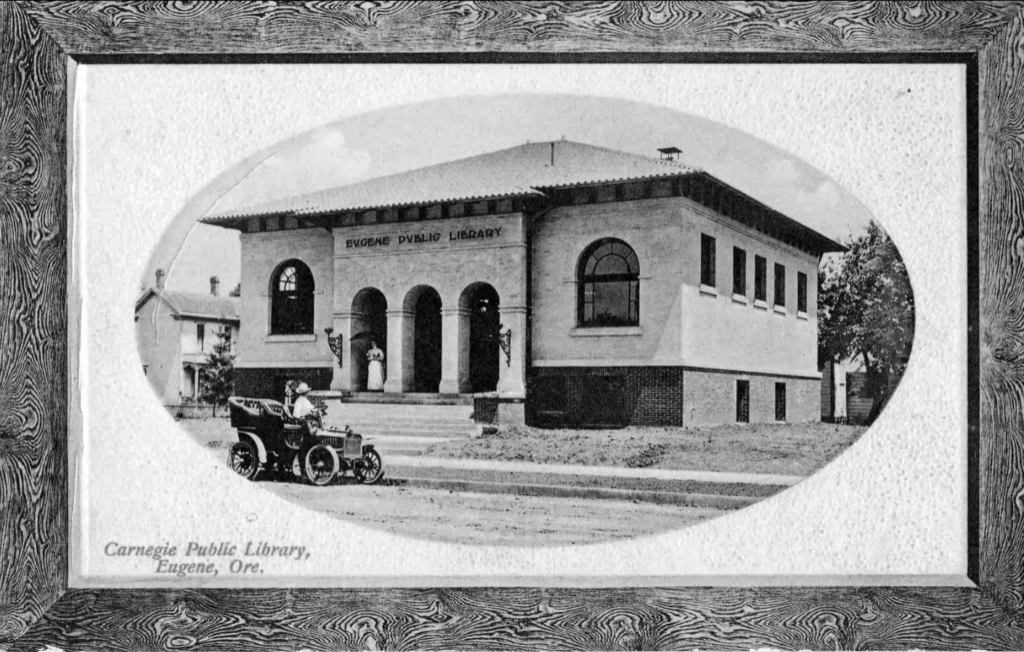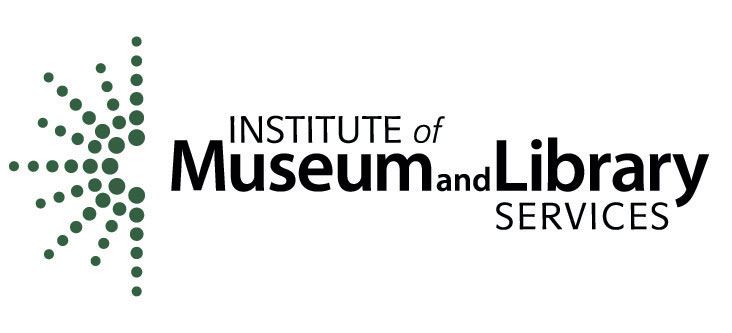As a young sprout reading yearningly about epic hikes in the Swiss Alps, I learned that hikers greeted each other with a polite “Grüezi” (grew-tzee). Grüezi is German/Swiss for “hello”, and short for “Gott grüez i” or “may God greet you”. Here in Montana we generally just say “hello.”
‘Hello’ finds its way into modern English from the Old High German ‘hullo’, which was used amongst other things for hailing ferrymen. ‘Hello’ becomes THE au courant American greeting in 1877 shortly after Thomas Edison, in a letter to T.B.A. David, then president of Pittsburgh’s telegraph company, promoted ‘Hello!’ as a telephonic greeting. It’s probably just as well that Edison’s hello won out over Alexander Graham Bell’s suggested “Ahoy!”
A civil ‘hello’ is good etiquette and a small but powerful bit of politeness, one that all libraries routinely offer their users. When in early September I walked into the Bitterroot Public Library (in Hamilton), a staff member posted near the door made me feel extremely welcome by looking me in the eye, smiling, and saying “hello”. It was a fleeting but potent interaction, evidenced by my clear memory of it several months afterwards. Her smile was genuinely infectious.
Accordingly, now infected, I smiled back. My responding smile released a flood of exuberant dopamine and serotonin into my own brain. These chemicals made me feel happy. Serendipitously, by smiling at me, the Bitterroot librarian simultaneously boosted her own happiness. Two people happy for the low low price of a smile and a ‘hello’.
There’s a ton of social utility packed into this smile and simple verbal greeting. In Japan, parallel to the Swiss’s expectation of ‘Grüezi’, trail etiquette encourages hikers to say “Konnichiwa” (hello, or good day). As this article explains, a shared “konnichiwa” goes a long way — it keeps one hiker from sneaking up and startling another, it conveys encouragement as each hiker toils on their shared trail, and most importantly, it infers “I see you, you are acknowledged, you are respected.”
One of the smallest but most important services librarians offer is being nice. When we smile and welcome library users, we’re acknowledging their inherent dignity, that is, their unearned worth and status as a human being. We’re adding richness to our mutual daily social interactions and taking a small step towards combating loneliness. We’re saying “You are welcome and respected here”, and at the same time, we’re pouring sunshine into the chemical soup sloshing around all our brains. That’s a lot of good health and social utility packed into a simple smile and “hello.”
Happy holidays.
Bruce Newell, Helena, MT
Author: Sean MLA
Your Work Matters – October 2025
Why Libraries? What Would Aristotle Say?
Libraries exist to serve people. People, in turn, are born to learn. If all goes well, learning leads to knowledge, knowledge leads to wisdom, and wisdom leads to happiness.

The 1970’s BBC sitcom, The Good Life, suggested happiness could be found in growing veg, pigs and chickens in the backyard. Aristotle, 384–322 BC, approached the happiness problem a little more philosophically, if arguably with equal pragmatism and zany verve.
Aristotle argued that wisdom is needed to live a good life. When we scrape away the ‘hows’ and ‘whats’ of libraries, and focus on the ‘whys’, we are confronted with a profoundly simple idea—libraries exist to facilitate learning. If ‘learning leads to knowledge which leads to wisdom which leads to happiness’ is true, than libraries are in the happiness business.
Aristotle begins his Metaphysics with the assertion “All men by nature desire to know…” (1). In his Nicomachean Ethics, he discusses five kinds of knowledge: (2)
- Technê — Practical knowledge, production, art, skill, crafts
- Epistêmê — Science, knowledge of fundamental things
- Phronêsis — Practical wisdom
- Sophia — Philosophic reason
- Nous — Intuitive reason
Aristotle holds that not all types of knowledge are equally important towards people’s ultimate goal, that is, of living well. He argued that practical wisdom (phronêsis) and philosophic reason (sophia) were the two most important types of knowledge for living happily. Aristotle suggests our goal as people is to flourish, or to use his word, to live in a state of eudaimonia, which could be translated as living happily, doing and living well. Aristotle says that the eudaimonic life is one of “virtuous activity in accordance with reason”. (3)
How might we, today, summarize the task of libraries while riding an elevator between just two floors? As State Librarian Jennie Stapp puts it, “the goal of libraries is to help people thrive.”
I think Aristotle, looking up from his cup of coffee as we step off the elevator, would grin and nod his head in agreement.
-Bruce Newell, Helena, MT
(1) https://classics.mit.edu/Aristotle/metaphysics.mb.txt
Your Work Matters – September 2025

Eugene Oregon’s Public Library, c. 1908. (1)
MLA President Sean Anderson has very kindly invited me to continue this occasional column in this new space. I hope that these musings provide an excuse for us all to sit back, take a breath, and think about the how’s, and even more the whys of libraries.
Everyone has their own library story, everyone that is who’s lucky enough to have a library they’ve made their own. My first library memories are from the mid-1950’s and center on Eugene Oregon’s 1906 Carnegie Library building, located at that time across from the old fire station on Eleventh and Willamette.
The children’s collection was accessed down a flight of stairs, and indifferently illuminated by several small windows straining to rise above the stolid brick foundation. The adult section, to me an untouchable, far grander promise of endless reading adventure, was at the top of a flight of stairs accessed behind and above the pictured lady in white. I don’t remember having access to the ‘grown-up’ books until Eugene’s new library was built in 1959.
The new library was for me a revelation. Instead of shunting kids off into a dim basement, the new library put all its collections on one daylighted floor. I could march around the scrim formed by a low long circulation desk and find myself in a forest of books, illuminated by natural light, and surely containing all-the-world’s most compelling stories.
A couple of things spring to mind:
The car parked out in front of the library is way cooler than any I’ve ever driven, although our mid-1960’s VW Van was pretty splendid. When it ran.
My memories of Eugene’s old Carnegie Library are still vivid nearly seventy years after the fact, but these memories are not about story times I attended or books I read. Instead they’re about the degree to which I felt liberated when a new building’s layout and permission to roam made it easy for me to find the library’s adult non-fiction collection, and I could start reading about mountaineers and sailors and spacemen and traveling with a donkey across the Cévennes. My library was a magic carpet to discover the world I came to inhabit.
Bruce Newell, Helena
Next time: Why libraries?
Image Credit: OSU Special Collections & Archives Research Center, Oregon State University. “Carnegie Public Library” Oregon Digital. 17 Aug 2025.
https://oregondigital.org/concern/images/df66vb09m
New Tool Makes Library Advocacy Easier Than Ever—Take Action Today
Montanans know how vital our libraries are—to our kids, our communities, our economy, and our sense of connection. But did you know that a significant portion of the funding that supports library services across our state comes from the federal government?
Right now, we need your voice to protect that funding.
The Museum and Library Services Act (MLSA) is up for re-authorization in Congress. This legislation underpins the IMLS Grants to States Program, which brings critical funding to Montana libraries every single year. Without it, services like early literacy programming, statewide databases, inter-library loan, workforce development support, and more could be severely impacted—especially in rural areas that depend on this funding the most.
That’s why we’re excited to announce a new, user-friendly advocacy tool from One-Click Politics, now available through Montanans for Libraries.
What It Does
This tool makes it incredibly easy to make your voice heard. You simply:
- Enter your contact information
- The system identifies your U.S. Senators and Representative
- You choose to send a message via email, make a quick phone call, or both
- You share the campaign with others through social media, email, or your website
No searching for contact information. No wondering what to say. The tool provides suggested language that you can personalize—or just send as-is.
Take action now: https://montanansforlibraries.org/imls-advocacy/
Your Privacy Matters
We want to be clear: Montanans for Libraries and One-Click Politics will never sell your information. This tool exists to connect Montana residents with their elected officials—nothing more. Your privacy and trust are important to us.
Trustworthy Information, Rooted in Montana
We know there’s a lot of noise out there—national headlines, constant updates, and social media posts competing for your attention. It can be hard to know where to turn for reliable, Montana-specific information.
That’s where Montanans for Libraries comes in. We’re committed to being a dependable source for advocacy updates, credible resources, and opportunities to take meaningful action.
If you’re looking for more background on why federal library funding matters, here are a few recent resources that highlight the value and impact of these investments in Montana:
- Federal Library Funds at Work in Montana (Montana State Library)
- Voices of Montana Libraries (COSLA Report)
- FAQ on the Executive Order Targeting IMLS (American Library Association)
Thank You for Supporting Montana Libraries
Every message sent makes a difference. Every call adds weight. And every share helps bring more Montanans into the conversation.
Whether you’re a library worker, a trustee, a volunteer, or simply someone who values the role libraries play in our communities—your voice matters.
Thank you for standing with us and for being part of this movement to ensure strong, sustainable libraries for all Montanans.
Get started now: https://montanansforlibraries.org/imls-advocacy/
Montanans are Speaking Up for Libraries
Across Montana, people are standing up for libraries — and we couldn’t be more grateful.
We deeply appreciate the recent editorials in the Flathead Beacon and the Bozeman Daily Chronicle, which shine a spotlight on the importance of libraries to the health and future of our communities. The voices of local leaders, writers, and citizens are essential as we work together to ensure libraries remain strong and well-supported across the state.
We’re especially grateful to our partners who lead the charge in their communities and help keep Montana’s libraries thriving:
- Bozeman Public Library Foundation & Friends
- Flathead Library Foundation
- Missoula Public Library Foundation
- Great Falls Public Library Foundation
- Billings Public Library Foundation
- Trust for Montana Libraries
Together, these organizations — and the generous communities that support them — are part of a growing statewide and national network of library champions.
Want to help?
Whether you’re ready to speak up, donate, or simply learn more, visit montanansforlibraries.org/support-libraries. Every action, large or small, helps ensure Montana’s libraries remain open, vibrant, and free to all.
Montana Libraries Speak Up for Federal Library Funding

The Montana Library Association (MLA) has officially adopted a resolution calling on Congress to reauthorize the Museum and Library Services Act (MLSA), a cornerstone of Federal support for libraries and museums across the country.
This legislation, set to expire on September 30, 2025, plays a critical role in ensuring Montanans—especially in rural and under-resourced areas—have access to the tools, information, and services they need to thrive. From boosting digital and financial literacy to strengthening access to lifelong learning opportunities, the MLSA helps libraries in every corner of our state do more with limited resources.
Montana libraries saw 3.5 million visits last year alone. Forty percent of Montanans have library cards. These aren’t just statistics—they’re proof that our libraries matter, and that continued support from the Federal government matters too.
We encourage you to read the full resolution below and consider contacting your congressional representatives in support of re-authorization. Every voice counts.
MLA Statement on the Executive Order to Eliminate IMLS
The Montana Library Association (MLA) is deeply concerned about the recent Executive Order affecting the Institute of Museum and Library Services (IMLS). While the full implications of this order remain unclear, we recognize the potential for significant and far-reaching impacts on libraries across Montana and the entire country. For an overview of what IMLS grants Montana libraries and museums received in FY2024, check out this map.
At this time, we have limited information about how this order will be implemented or what specific effects it will have on funding, programming, and resources for Montana libraries. We believe it would be premature to speculate on the outcomes, but we want to assure our members and library supporters that we are closely monitoring the situation.
MLA is coordinating with our partners at the American Library Association (ALA) and the Chief Officers of State Library Agencies (COSLA) to stay informed and provide accurate updates. We encourage you to follow these organizations, as well as the IMLS, for the most current information.
In uncertain times especially, your stories matter. As we prepare to engage with Montana’s elected leaders and congressional delegation, it will be crucial to demonstrate the value of Montana libraries and the vital role they play in our communities. We invite library users to share their experiences with us—how your local library has supported you, your family, or your community. Your stories will help us advocate effectively and highlight the real-world impact of library services.
You can share your stories with us via our social media pages on Facebook and Instagram, or by emailing us. If you’d like to share your library stories directly with Montana’s Congressional Delegation, you can find their phone numbers here.
Thank you for your continued support of Montana libraries.
Welcome to the 69th Montana Legislature!
We’re excited to have kicked off the 2025 Legislative session – MLA expects this to be a busy one, and an important one for Montana’s Libraries. You likely already know about our legislative priorities and our legislative proposal to address the unfunded mandate for resource-sharing. We will update you throughout the session on the status of this work, as well as on other key issues impacting your libraries. Those updates will begin in the coming weeks, so get signed up for our mailing list!
But first, a bit of fun – On January 9th, MLA hosted our Legislative Day in the Capitol rotunda in Helena, MT. It was a bit earlier in the session than usual, and it was great to see so many legislators, library staff, and library lovers at the Capitol to learn about and promote the work of libraries. This year, in addition to learning about MLA’s legislative priorities, we also invited Montana’s elected officials to have their photo taken with their favorite Montana book. This was a popular attraction, and as a result, we will print more than 60 posters and distribute them in the coming weeks to each representative’s home library. In total, we had nearly 100 legislators and dozens more library supporters stop by throughout the afternoon and into the evening!

Earlier that day, we hosted a learning session at the beautiful Lewis & Clark Library in downtown Helena. During that time, library professionals from across the state got an introduction to the Montana Legislative session from our friends at Central House Strategies, did a deep-dive on parliamentary procedure with Morgan Ray from the FVCC Library, and even learned about some new legal support opportunities that are available to them through MLA – more news on that coming soon!
We are so grateful for everyone who made this very busy week a very successful week – Special thanks to Beth Boyson, Jo Flick, John Finn, Jodi Smiley, Kris Goss, Morgan Ray, MLA’s ED Kirk Vriesman, our outstanding Board of Directors and planning committees, and to Montana’s legislative delegation.



